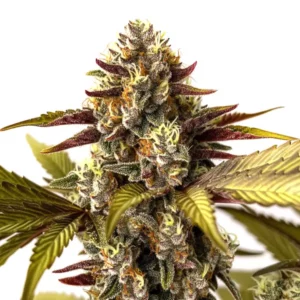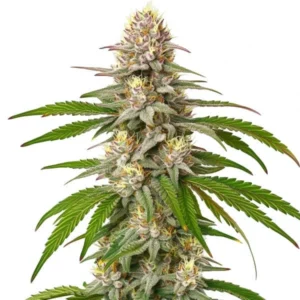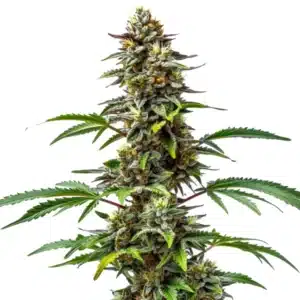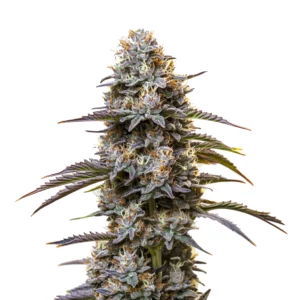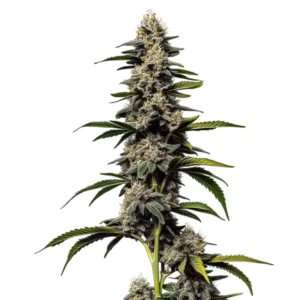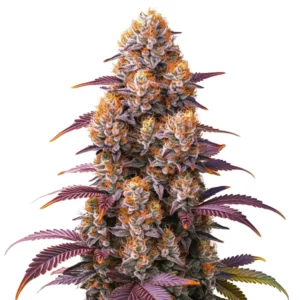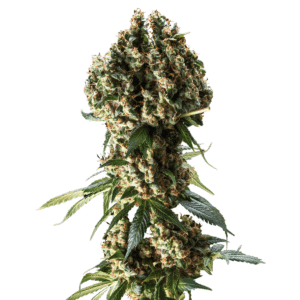
How to Get THCA Out of Your System
Effective Ways to Eliminate THCA from Your Body
THCA, or tetrahydrocannabinolic acid, is a naturally occurring cannabinoid found in raw cannabis plants, and it is non-psychoactive in its raw form. Unlike THC, THCA doesn’t cause a high until it’s heated or aged, a process that converts it to THC through decarboxylation. Nevertheless, when ingested or absorbed into the body, THCA can still transform into metabolites that might be detectable in various drug tests. As a result, many individuals are interested in understanding how THCA is metabolized and learning methods to remove it efficiently from the body, especially if they need to clear it for occupational, medical, or legal reasons.
Eliminating THCA from the body isn’t an instant process, as the metabolites can persist in fat cells due to their fat-soluble nature. This means that a range of personal factors such as metabolism, body composition, and lifestyle can influence how long THCA stays detectable. In this article, we’ll explore some effective, natural methods to support the body’s detoxification and increase the rate at which it clears THCA. By understanding these strategies, individuals can take proactive steps to manage and potentially reduce the detection period of THCA.
Recommended Strains
Grandaddy Black
|
|
THC | 19% - 23% (Medium) |
|
|
Type | Feminized |
|
|
Yield | High |
|
|
Phenotype | 90% Indica / 10% Sativa |
Grandaddy Purple x Do-Si-Dos
|
|
THC | 20% - 24% (Medium) |
|
|
Type | Feminized |
|
|
Yield | High |
|
|
Phenotype | 80% Indica / 20% Sativa |
Promos & Deals
How the Body Metabolizes THCA
THCA itself is non-psychoactive, meaning it does not bind effectively to receptors in the brain responsible for creating a high. However, it is still processed by the liver and can produce fat-soluble metabolites that get stored in the body’s fat tissues. When consumed, whether raw or in some processed form, THCA enters the bloodstream and is transported to the liver. In the liver, enzymes break down THCA into various metabolites, which can eventually be stored in fatty tissues throughout the body, leading to longer retention periods in the system.
This retention in fat cells is a key reason why THCA and its derivatives linger in the body. Unlike water-soluble compounds that are eliminated relatively quickly through urine, THCA metabolites are stored in fat and only released slowly over time as fat is metabolized. Because of this, it’s not just the intake of THCA that matters; factors like body fat percentage, diet, and metabolic rate also play significant roles in how long THCA metabolites can stay within the system.
Factors Influencing THCA Retention in the Body
Many factors determine how long THCA remains detectable in an individual’s system, and understanding these factors can help manage expectations for detoxification. For example, the frequency and amount of THCA use are primary considerations; regular users are more likely to retain THCA metabolites for longer periods compared to occasional users. Additionally, each person’s body fat percentage plays a substantial role since THCA metabolites are stored in fat cells. Those with higher body fat may retain these metabolites longer than individuals with leaner body compositions.
Another critical factor is metabolic rate. People with faster metabolisms can process and eliminate THCA metabolites at a quicker pace, while those with slower metabolisms may find that metabolites remain in their system for extended periods. Lastly, hydration and diet also influence THCA retention. A well-hydrated body with a balanced diet can support natural detoxification pathways, making it easier for the body to break down and eliminate stored metabolites. These individual differences mean that THCA retention can vary significantly between individuals, even if they consume the same amounts.

Natural Methods to Help Clear THCA from the System
If you’re aiming to expedite the removal of THCA from your body, there are natural strategies that can assist in supporting your body’s detoxification process. These methods are not quick fixes but can help create an environment that allows your body to eliminate THCA metabolites more efficiently. By incorporating certain dietary and lifestyle habits, you can enhance your body’s ability to process and expel stored metabolites, making it possible to shorten the detection period in a drug screening.
Natural detoxification methods primarily focus on hydration, diet, and physical activity. For instance, drinking ample water, consuming fiber-rich foods, and maintaining a regular exercise routine can play important roles in managing THCA levels. Although these strategies don’t promise immediate results, they contribute positively to the body’s detox pathways, helping to eliminate metabolites in a steady, sustainable manner. Consistency is key, as incorporating these practices over time will be more effective than any single method on its own.
1. Increase Fluid Intake
Increasing fluid intake is one of the easiest ways to support the body’s detoxification process. When you consume more water, it helps flush out toxins through urine, potentially lowering the concentration of THCA metabolites. Although drinking water alone won’t entirely remove THCA, it does promote kidney function and can dilute metabolite levels in urine, which might be helpful for people facing a drug test. Staying consistently hydrated ensures that your body’s filtration system is working efficiently, creating an environment conducive to detoxification.
In addition to water, consuming herbal teas like dandelion or ginger tea can also support the body’s natural detox process. These teas are known for their antioxidant properties and can enhance liver function, further aiding in the removal of metabolites. The key is to keep a steady flow of fluids going through your body, giving your kidneys the assistance they need to filter out waste effectively. Just remember, while fluids help, they aren’t a guaranteed solution but part of a broader detox strategy.
2. Adopt a High-Fiber Diet
A high-fiber diet is beneficial for detoxifying fat-soluble compounds, such as THCA metabolites, as it promotes healthy digestion and helps eliminate waste products more effectively. Fiber binds to bile in the digestive system, where the liver processes and disposes of many metabolites. Consuming fiber-rich foods like vegetables, fruits, and whole grains can aid in the excretion of these compounds, potentially speeding up the detox process. Additionally, fiber helps maintain a healthy digestive system, which is crucial for overall health and optimal detoxification.
Adding foods such as leafy greens, avocados, and beans to your meals can be an effective way to increase your fiber intake. By enhancing your digestive health, a high-fiber diet ensures that toxins don’t linger in the system longer than necessary. This method works best as a consistent part of your lifestyle, as opposed to a one-time dietary change. Alongside a well-rounded diet, fiber contributes to a body environment that is more efficient at handling and eliminating stored metabolites.
3. Exercise Regularly
Regular exercise can play a significant role in the detoxification process by helping reduce body fat and, consequently, the storage of THCA metabolites. Since these metabolites are stored in fat cells, aerobic activities like running, cycling, and swimming can help release them as the body burns fat. Incorporating cardiovascular exercises into your daily routine promotes a gradual reduction of fat reserves, thus potentially lowering the amount of THCA stored in your body. Exercise is an effective method for those looking to lower detection times, but it requires consistency and commitment to achieve notable results.
While regular exercise helps release metabolites stored in fat, it’s important to time your workouts appropriately if you’re expecting a drug test. Intense physical activity can temporarily increase metabolite levels in the bloodstream as fat breaks down. If you anticipate a test, it might be wise to moderate your exercise routine a few days beforehand to avoid unexpected spikes. Overall, exercise is a beneficial tool for those on a long-term detoxification journey and supports overall health as well.
4. Get Quality Sleep
Quality sleep is vital for maintaining a balanced metabolism and supporting the body’s detox processes. During restful sleep, the body goes through repair and regenerative processes, including detoxification through the liver and kidneys. Getting adequate, uninterrupted sleep can therefore enhance the rate at which THCA is broken down and eliminated. A well-rested body is more efficient in handling waste, which aids in overall health and supports detoxification efforts.
Poor sleep habits, on the other hand, can slow down the body’s ability to metabolize and excrete compounds like THCA. Prioritizing consistent, quality sleep enables the body to function optimally and provides a stable foundation for any detox methods you might be incorporating. Aim for seven to nine hours per night and establish a relaxing pre-sleep routine to improve sleep quality. By optimizing rest, you’re providing your body the necessary downtime to process and clear out metabolites effectively.

Other Techniques to Help Reduce THCA Levels
Aside from natural methods, certain techniques and lifestyle adjustments can complement the detoxification process. Many of these approaches are designed to assist the body in metabolizing stored compounds more efficiently. These techniques may not be quick solutions but can be highly effective when used in conjunction with a healthy lifestyle. By understanding these options, individuals can enhance their body’s natural capabilities and reduce the THCA detection period more effectively.
One such technique is using sauna sessions to encourage sweating, which helps eliminate toxins through the skin. Additionally, avoiding foods that can slow metabolism, like fatty and sugary items, can enhance your body’s ability to utilize stored fat, reducing the retention period of THCA. While these techniques don’t work instantly, when used in tandem with natural detoxification methods, they can create a holistic approach to detox that works with your body’s natural processes.
1. Sauna Sessions
Sauna sessions are a unique way to aid in detoxification through sweating. While primarily used for relaxation and muscle recovery, saunas can encourage the body to release certain toxins, including stored THCA metabolites, via perspiration. This method is especially helpful when combined with hydration, as sweating can lead to fluid loss. Sweating alone won’t flush THCA completely, but it’s an additional support mechanism that may contribute to a broader detox plan.
Saunas are especially effective when used regularly as part of a wellness routine. A single session may not yield significant results, but repeated use can enhance circulation and detoxification efforts. For optimal effects, drink plenty of water before and after your sauna session to replenish lost fluids and support kidney function. This combination can aid the body in managing and processing toxins over time.

2. Avoid Fatty and Sugary Foods
A diet rich in fatty or sugary foods can slow down metabolism and encourage the body to store excess fat, making it harder to eliminate fat-soluble metabolites like THCA. By limiting these foods, you can help your body prioritize fat burning, allowing it to process stored THCA metabolites more efficiently. Opting for nutrient-dense foods instead, such as lean proteins, whole grains, and vegetables, can help maintain an optimal metabolic rate.
Reducing fatty and sugary foods in your diet isn’t just beneficial for THCA detox but also supports overall health. This dietary adjustment enhances the body’s ability to metabolize fat reserves more effectively. By making these changes, you create a metabolic environment that can gradually clear out metabolites, aiding in your long-term detox journey.
3. Consider Vitamin C and B Supplements
Vitamins C and B can be supportive supplements in the detoxification process, as they aid in energy metabolism and liver health. Vitamin C acts as an antioxidant that protects cells during detox, while B vitamins, especially B6 and B12, contribute to energy production and metabolism. A diet or supplementation plan rich in these vitamins can provide your body with the support it needs for an effective detoxification process.
These vitamins work best when included consistently as part of a balanced diet. Rather than relying solely on supplements, aim to incorporate foods naturally high in vitamins C and B, such as citrus fruits, leafy greens, and whole grains. This way, you’re giving your body the nutrients it needs to function at its best, which can support the elimination of THCA over time.



